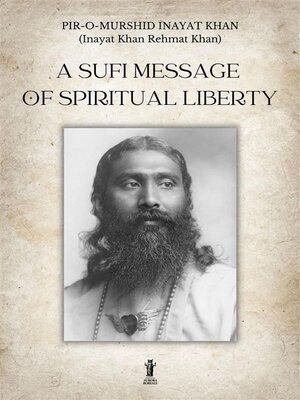
Sign up to save your library
With an OverDrive account, you can save your favorite libraries for at-a-glance information about availability. Find out more about OverDrive accounts.
Find this title in Libby, the library reading app by OverDrive.



Search for a digital library with this title
Title found at these libraries:
| Library Name | Distance |
|---|---|
| Loading... |
Inayat Khan Rehmat Khan (1882-1927), better known as Pir-o-Murshid Inayat Khan, was an Indian musicologist, singer, poet, philosopher, and pioneer of the transmission of Sufism to the West. At the urging of his students, and on the basis of his ancestral Sufi tradition and four-fold training and authorization at the hands of Sayyid Abu Hashim Madani of Hyderabad, he established an order of Sufism in London in 1914. By the time of his death in 1927, centers had been established throughout Europe and North America, and multiple volumes of his teachings had been published.
The word Sufi is derived from Safa, meaning pure, purified of ignorance, superstition, dogmatism, egotism, and fanaticism, as well as free from limitations of caste, creed, race, and nation. The Sufis believe in God as the Absolute, the only Being; and that all creation is the manifestation of His nature.
There have been Sufis at all periods of human history. Though they have lived in different parts of the world, speaking different languages and born into different faiths and beliefs, they have recognized and sympathized with each other, through the oneness of their understanding. Yet with their deep knowledge of the world and of spiritual mysteries, they have concealed their beliefs from the multitude, and have pursued in secret their way of attainment to the highest bliss.
The word Sufi is derived from Safa, meaning pure, purified of ignorance, superstition, dogmatism, egotism, and fanaticism, as well as free from limitations of caste, creed, race, and nation. The Sufis believe in God as the Absolute, the only Being; and that all creation is the manifestation of His nature.
There have been Sufis at all periods of human history. Though they have lived in different parts of the world, speaking different languages and born into different faiths and beliefs, they have recognized and sympathized with each other, through the oneness of their understanding. Yet with their deep knowledge of the world and of spiritual mysteries, they have concealed their beliefs from the multitude, and have pursued in secret their way of attainment to the highest bliss.







